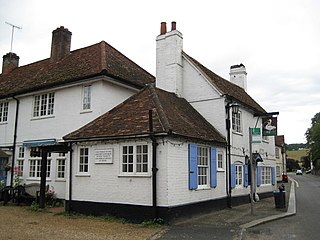
The National Inventory of Historic Pub Interiors was a register of public houses in the United Kingdom with interiors which had been noted as being of significant historic interest, having remained largely unchanged for at least 30 years, but usually since at least World War II. [1]
The National Inventory was begun by (and was maintained by) the Campaign for Real Ale as part of that organisation's mission to protect Britain's pub heritage as well as good beer. CAMRA is an independent, voluntary, consumer organisation based in the UK whose main aims are promoting live beer (real ale), cider and perry and thriving pubs and clubs in the community. It is now the largest single-issue consumer group in the UK. [2] Within CAMRA, the "Pub Heritage Group" is established to identify, record and help protect public house interiors of historic and/or architectural importance, and seeks to get them listed, if they are not already. [3] The group maintained inventories of "Real heritage pubs", the National Inventory (NI) and the Regional Inventory (RI), alongside a list of pubs with interiors 'of some regional interest'.
The NI contained 289 pubs as of June 2009 [update] . [4]
In 2023, the system was revised and now comprises a single register of 'real heritage pubs' with significant interior features that have remained unaltered for at least 50 years. Each entry is assigned a grading between one (the least important) and three (the most important) stars. These are roughly equivalent to the old 'some regional', regional and national registers respectively, but many pubs have been re-evaluated and regraded. [5] The grading applies only to interiors, not exteriors which may be covered separately by statutory and local heritage listings.
CAMRA has established influence at national government level, including English Heritage, and has been designated by the Secretary of State for Trade and Industry as a "super-complainant" to the Office of Fair Trading. [6] CAMRA presents the Pub Design Awards, which are held in association with English Heritage and The Victorian Society. These comprise several categories, including new build, refurbished, and converted pubs.



















